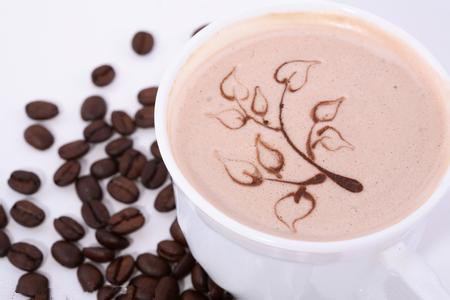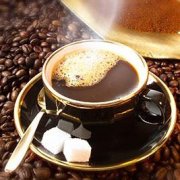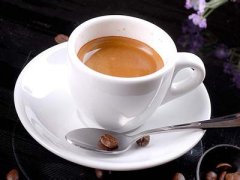The Coffee Culture of China and France basic knowledge of Fine Coffee Culture

In China, people are drinking coffee more and more. The resulting "coffee culture" fills every moment of life. Whether at home, in the office, or in social settings, people are sipping coffee: it is increasingly associated with fashion and modern life. Coffee houses everywhere became a good place for people to talk, listen to music and rest, and coffee gradually developed into a culture. Whether it is freshly ground coffee beans or freshly brewed hot coffee, it emits a rich aroma that is intoxicating. There are many ways to savor this indulgence: espresso, cappuccino, latte, flavored coffee; they offer a variety of options for coffee house frequenters in Beijing, Shanghai and other big cities in China. The Chinese are also starting to like making their own coffee. Roasted coffee beans and percolator, filter paper to make a cup of fresh coffee, do not have a taste.
Coffee is being accepted by more and more Chinese people as it becomes known as a drink with a long history. Statistics show that China's coffee consumption is rising year by year, and is expected to become an important coffee consumer in the world. Now, Yunnan coffee produced in China's own land, with its noble quality and low price, will promote this trend, guide this fashion, become Chinese people's own coffee brand, thus having China's own unique coffee culture, please have a cup of coffee, this is the taste of life!
France
I heard that France once drank less coffee because of a shortage of coffee, and immediately saw more people napping. It sounds like an exaggeration, but it's true that the French love coffee. When the Gulf War broke out in 1991, France was also one of the participating countries. Some people in China worried that the war would affect the supply of daily necessities and rushed to supermarkets to buy them. Even the TV station was alarmed. When the camera was aimed at customers who were full of "scarce materials", they found that they took the most coffee and sugar. This became a big joke at the time.
French coffee does not seem to stress the taste, but the environment and atmosphere, most do not want to close the door "drink alone", but to join in the fun outside, even if the price of a small cup is enough to cook a pot at home. They did not drink it in a hurry, but slowly tasted it, carefully tasted it, read books and newspapers, talked loudly, and drank for most of the day. French people develop this habit of drinking coffee, consciously or unconsciously expressing an elegant charm, a romantic atmosphere, a sense of enjoyment of life. It can be said that this is a traditional coffee culture.
Because of this, France can be said to have a coffee stop all over the streets, roadside, square, river bank, cruise ship, and even Eiffel Tower. And the form, style, size eclectic, there are coffee shops, restaurants, halls, rooms. And the most popular, full of romantic atmosphere, or those outdoor cafes, which is almost a portrayal of French life. No wonder tasteful Frenchmen have a tradition that it may be harder to change a café on the Seine than a religion! A real cafe, regulars not only never easily change their own cafe, even the time they come to the cafe and the habit of which coffee table they sit on are fixed. This loyalty, of course, is also reflected in the tireless hospitality of the host, who, without greeting him, brings his favorite coffee, accompanied by a plate of special snacks, and even brings his favorite newspaper, without saying thank you, which is taken for granted in an authentic cafe.
Important Notice :
前街咖啡 FrontStreet Coffee has moved to new addredd:
FrontStreet Coffee Address: 315,Donghua East Road,GuangZhou
Tel:020 38364473
- Prev

Blue Mountain Coffee is made in the Blue Mountains of Jamaica.
Some industry insiders revealed that authentic Blue Mountain coffee beans have never entered the Chinese market in bulk from official channels! If this is true, where does the Blue Mountain coffee sold in domestic coffee shops come from? What exactly is the Blue Mountain Coffee in the coffee shop that we regard as a coffee classic? The world-famous Blue Mountain Coffee, from the Blue Mountains of Jamaica, due to its low caffeine content.
- Next

Coffee basic knowledge Coffee production process and main ingredients
The coffee production process from the coffee fruit to the coffee in the cup requires a complex processing process. Coffee beans: peel the coffee beans from the coffee fruit. Roasting: is to cultivate the taste of coffee beans and mellow processing. The excellent roasting process allows the coffee beans to completely volatilize their unique taste and aroma. Grinding: grind roasted coffee beans into particles. Extract
Related
- Beginners will see the "Coffee pull flower" guide!
- What is the difference between ice blog purified milk and ordinary milk coffee?
- Why is the Philippines the largest producer of crops in Liberia?
- For coffee extraction, should the fine powder be retained?
- How does extracted espresso fill pressed powder? How much strength does it take to press the powder?
- How to make jasmine cold extract coffee? Is the jasmine + latte good?
- Will this little toy really make the coffee taste better? How does Lily Drip affect coffee extraction?
- Will the action of slapping the filter cup also affect coffee extraction?
- What's the difference between powder-to-water ratio and powder-to-liquid ratio?
- What is the Ethiopian local species? What does it have to do with Heirloom native species?

